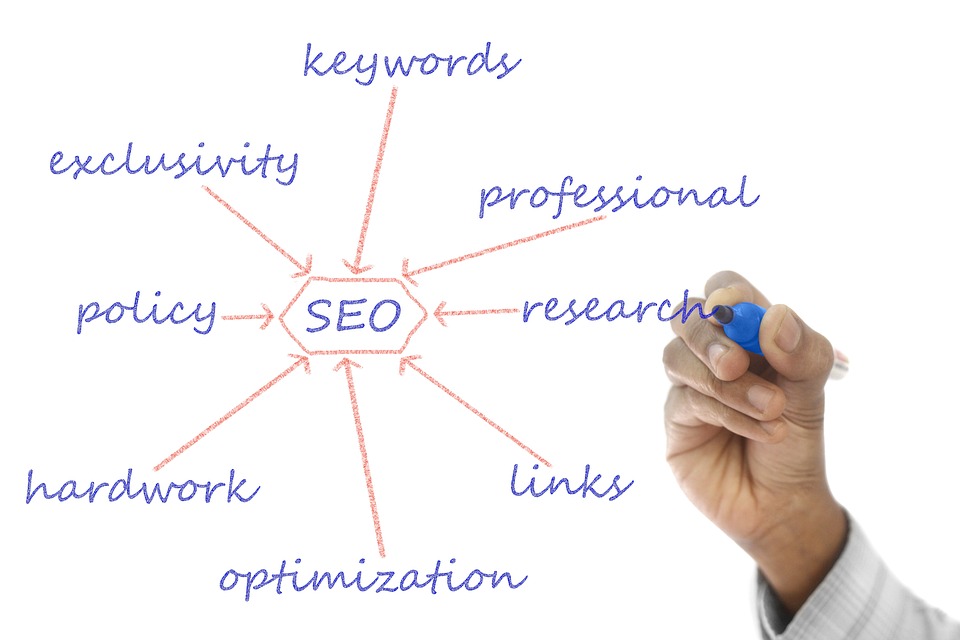10 Essential SEO Techniques for Website Development: A Definitive Guide
Are you looking to improve the visibility of your website and attract more organic traffic? Search Engine Optimization (SEO) is the key to achieving these goals. By implementing effective SEO techniques during the development phase of your website, you can ensure that it ranks higher in search engine results pages (SERPs) and drives more targeted visitors to your site. In this comprehensive guide, we will explore the top 10 essential SEO techniques for website development that can help you achieve online success.
1. Mobile-friendly Design: With the increasing use of smartphones and tablets, it is crucial to have a mobile-friendly website. Ensure that your website is responsive, meaning it automatically adjusts its layout and content to fit different screen sizes. Google prioritizes mobile-friendly websites in its search results, so optimizing for mobile is a must.
2. Page Speed Optimization: Users expect fast-loading websites, and search engines take page loading speed into account when ranking websites. Optimize your website’s code, compress images, and leverage caching techniques to improve page load times. This will not only enhance user experience but also boost your search engine rankings.
3. Keyword Research: Conduct thorough keyword research to identify the most relevant terms and phrases that your target audience is searching for. Incorporate these keywords naturally into your website’s content, meta tags, and URLs. Remember to avoid keyword stuffing, as it can harm your SEO efforts.
4. Content Quality and Relevance: High-quality and relevant content is essential for SEO success. Create informative and engaging content that provides value to your visitors. Regularly update your website with fresh content to keep visitors coming back and search engines crawling your site more frequently.
5. On-page Optimization: Optimize each page of your website individually. Include relevant keywords in your page titles, headings, meta descriptions, and alt tags for images. Craft compelling meta descriptions that entice users to click on your website in the search results.
6. URL Structure: Create user-friendly and search engine-friendly URLs. Use descriptive words that accurately represent the content of the page. Avoid using generic URLs or ones with random numbers and symbols.
7. Internal Linking: Connect your website’s pages through internal links. This helps search engines understand the structure of your site and improves user navigation. Ensure that your anchor text is descriptive and relevant to the page being linked to.
8. Schema Markup: Implement schema markup on your website to provide search engines with additional information about your content. This can enhance your website’s visibility in search results and attract more qualified traffic.
9. Social Media Integration: Integrate social media sharing buttons on your website to encourage visitors to share your content. This can increase your website’s visibility and attract more inbound links, which are crucial for SEO.
10. Regular Monitoring and Optimization: Implement website analytics tools, such as Google Analytics, to monitor your website’s performance. Analyze data regularly, identify areas for improvement, and make necessary optimizations to maximize your website’s SEO potential.
Frequently Asked Questions (FAQs):
Q: How long does it take to see SEO results?
A: SEO is a long-term strategy, and the time it takes to see results can vary depending on several factors, such as the competitiveness of your industry and the current state of your website’s SEO. Generally, it can take several months to start seeing significant improvements in search engine rankings and organic traffic.
Q: Is SEO a one-time process?
A: No, SEO is an ongoing process. Search engines continuously update their algorithms, and your competitors are constantly optimizing their websites. To maintain and improve your SEO rankings, you need to regularly update your website, create fresh content, and adapt to changes in the digital landscape.
Q: Are backlinks still important for SEO?
A: Yes, backlinks are still an important ranking factor for search engines. However, the quality of backlinks matters more than the quantity. Focus on acquiring high-quality backlinks from reputable websites in your industry to enhance your website’s authority and improve search engine rankings.
Q: Can I do SEO myself, or do I need to hire an expert?
A: While basic SEO techniques can be implemented by website owners themselves, hiring an SEO expert can provide a more comprehensive and strategic approach. SEO experts have the knowledge and experience to analyze your website, conduct in-depth keyword research, and implement advanced optimization techniques to maximize results.
Q: How can I track the success of my SEO efforts?
A: Website analytics tools, such as Google Analytics, can track various metrics related to your website’s SEO performance. These include organic traffic, keyword rankings, bounce rate, and conversion rate. Regularly monitor these metrics to assess the effectiveness of your SEO strategies and make informed optimization decisions.
In conclusion, implementing these essential SEO techniques during the website development phase can significantly improve your website’s visibility, organic traffic, and overall online success. By focusing on mobile optimization, page speed, keyword research, quality content, and other key factors, you can enhance your website’s search engine rankings and attract targeted visitors. Regular monitoring and optimization are crucial to stay ahead in the ever-evolving world of SEO.









